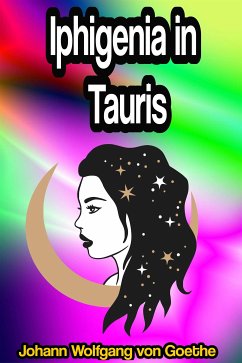Iphigenia in Tauris by Johann Wolfgang von Goethe Iphigenia in Tauris (German: Iphigenie auf Tauris) is a reworking by Johann Wolfgang von Goethe of the ancient Greek tragedy Ἰφιγένεια ἐν Ταύροις ( Iphigeneia en Taurois) by Euripides. Euripides' title means "Iphigenia among the Taurians", whereas Goethe's title means "Iphigenia in Taurica", the country of the Tauri.
Goethe wrote the first version of his play in six weeks, and it was first performed on April 6, 1779, in prose form. He rewrote it in 1781, again in prose, and finally in 1786 in verse form. He took the manuscript of Iphigenia in Tauris with him on his famous Italian Journey.
Beloved by the gods for his wisdom, the demigod Tantalus was once invited to their fellowship. Becoming boisterous whilst celebrating with them, he began to boast, and he stole the gods' nectar and ambrosia, their food of immortality. When the gods came to see Tantalus in turn, he tested their omniscience by offering his own son Pelops to them as their meal.
Offended by the deception, the gods banished Tantalus from their community to Tartarus and cursed him and his family, the House of Atreus. This became known as the curse on the Tantalids, in which descendants from Tantalus in every subsequent generation were driven by revenge and hatred to the killing of their own family members.
Goethe wrote the first version of his play in six weeks, and it was first performed on April 6, 1779, in prose form. He rewrote it in 1781, again in prose, and finally in 1786 in verse form. He took the manuscript of Iphigenia in Tauris with him on his famous Italian Journey.
Beloved by the gods for his wisdom, the demigod Tantalus was once invited to their fellowship. Becoming boisterous whilst celebrating with them, he began to boast, and he stole the gods' nectar and ambrosia, their food of immortality. When the gods came to see Tantalus in turn, he tested their omniscience by offering his own son Pelops to them as their meal.
Offended by the deception, the gods banished Tantalus from their community to Tartarus and cursed him and his family, the House of Atreus. This became known as the curse on the Tantalids, in which descendants from Tantalus in every subsequent generation were driven by revenge and hatred to the killing of their own family members.









